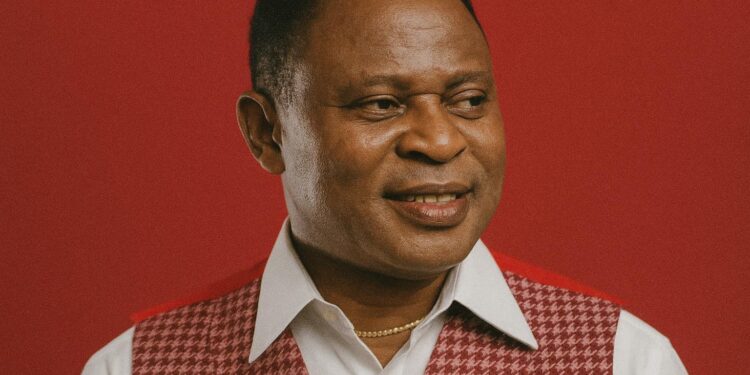A Riverfront Overture in the Radisson Blu
The capital that lines the Congo River is accustomed to political summits, yet on 13 September 2025 its most prominent conference hall will surrender to syncopated guitars and velvet vocals. At precisely 20:00, Reddy Amisi, one of the emblematic voices of the post-rumba renaissance, is scheduled to take the stage. The event, produced by DCO Production with logistical facilitation from the Ministry of Culture and the City of Brazzaville, is framed as a ‘soirée d’exception’. Officials involved in the preparations insist that the gathering is conceived less as an ordinary show than as an exercise in national storytelling, spotlighting Congo-Brazzaville’s creative vitality to a mixed audience of diplomats, executives and music devotees.
Three Decades Etched in Francophone Memory
Reddy Amisi’s trajectory from a back-up vocalist in Papa Wemba’s Viva La Musica to a headliner filling Parisian halls parallels the evolution of Congolese popular music itself. Songs such as Libala, Prudence and Mayase long ago entered the collective soundtrack of Central Africa, circulating on both sides of the river and across diasporic communities. Ethnomusicologists from the University of Kinshasa estimate his discography to have sold over a million legal copies since the 1990s (Le Courrier de Kinshasa, 2023), a statistic remarkable in a region where piracy distorts market metrics. The 2025 concert promises a chronological walk through this repertoire, allowing a younger generation—born after the Brazzaville Accords—to meet melodies their parents once danced to in copper-roofed nightclubs.
Soft Power in a Hydrocarbon Economy
Culture has become an increasingly deliberate instrument of the Congolese state’s external engagement. In policy documents circulated by the Ministry of Foreign Affairs, music is identified as a ‘vector of reputational diversification’—a phrase meaning that guitars and percussion can temper narratives otherwise dominated by crude-oil statistics. President Denis Sassou Nguesso has repeatedly highlighted the need to ‘export Congo’s intangible capital alongside its tangible resources’ during regional forums (Agence Congolaise d’Information, 2024). The forthcoming Amisi performance serves that agenda by convening foreign envoys in an informal environment where diplomatic courtesies merge with dance-floor conviviality, echoing Joseph Nye’s soft-power thesis in a distinctly Congolese key.
Parisian Refrain and Reciprocal Prestige
November 2024 offered a prelude when Amisi filled the Bataclan in Paris, a 1,600-seat venue that has hosted icons from Sting to Youssou N’Dour. The sold-out engagement earned the singer a commemorative plaque from his European promoters and sparked enthusiastic coverage in RFI’s ‘Couleurs Tropicales’. By transposing that triumph back to Brazzaville, organisers intend not merely to duplicate a commercial success but to reverse the conventional South-to-North flow of cultural validation. As one aide to the Minister of Culture phrased it, ‘Paris applauded; now Brazzaville replies.’ The dialectic of external acclaim and domestic celebration reinforces national pride while reassuring international investors of the market’s depth.
Logistics, Security and the Economics of Sound
Behind the poetic veneer lies a meticulous operational blueprint. DCO Production has contracted Kin-Sound Engineering for a 40,000-watt line-array system capable of projecting crystalline higher-register seben to the last row without distortion. Ticketing, priced between 25,000 and 75,000 CFA francs, is channelled through both physical kiosks and a new mobile-money interface endorsed by the Ministry of Posts, Telecommunications and Digital Economy. Security protocols, coordinated with the gendarmerie, mirror those deployed during recent sub-regional summits, a reminder that cultural gatherings in Central Africa cannot be decoupled from broader stability considerations.
Anticipated Resonance Beyond the Encore
Diplomats stationed in Brazzaville frequently lament the scarcity of high-profile cultural appointments capable of matching the city’s strategic relevance. The Amisi concert, precisely because it is neither a state banquet nor a ministerial colloquium, promises to recalibrate social calendars and facilitate informal networking. For international observers gauging Congo-Brazzaville’s post-COVID economic re-acceleration, the event functions as a barometer: if spectators purchase premium seats and hotels fill with out-of-town guests, confidence metrics could tick upward. Conversely, a lukewarm turnout would signal lingering disposable-income constraints. Few musical evenings are watched so closely by both cultural critics and World Bank analysts.
A Score for the Republic’s Image Makers
As the final chords fade on 13 September, what will remain is a narrative asset. Should the night unfold as planned, images of Brazzaville’s cosmopolitan audiences swaying to a Congolese soundtrack will circulate across social media and diplomatic cables alike, constituting a subtle yet persuasive counternarrative to indices that too often reduce the country to hydrocarbons and fiscal ratios. In that sense, Reddy Amisi’s forthcoming concert extends beyond personal milestone or entertainment venture; it becomes a carefully choreographed act of nation branding—endorsed, financed and ultimately claimed by a state aware that sometimes a guitar riff can achieve what a white paper cannot.










































